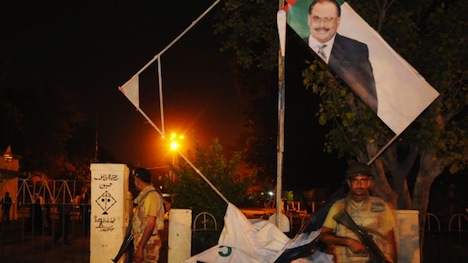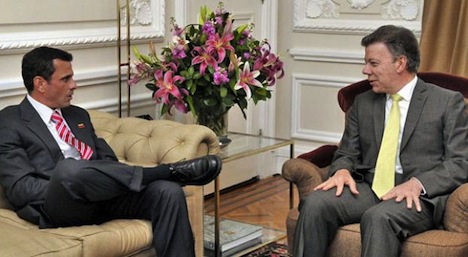
Neal Ascherson turns his gaze toward German chancellor Angela Merkel, her opponent Peer Steinbrück, the former East German ghosts that haunt Germany, and the Hartz IV labor reforms that also haunt it, in a superb essay for the London Review of Books that’s probably the best thing you’ve read so far this year on Germany, its politics, the importance of regional governance in an increasingly federal Europe and the north-south (and west-east) European divide.
On Berlin, Ascherson captures in one paragraph the idiosyncratic nature of Berlin, which is really unlike any other city in Europe, which he argues ‘will never be a real capital again’:
When people talk about ‘Berlin’, they usually don’t mean the government of the most powerful nation in Europe. They mean Klaus Wowereit, the gay mayor, or the film festival, or a new café on the Oranienburgerstrasse, or the botched plan for yet another unnecessary airport. There is no centre. Even Bonn, in the years when the federal government was there, seemed more in command than Berlin is now.
Ascherson uses reunification as an analogical point — it’s the moment the West German social welfare model fell apart, for better and for worse:
And when the West Germans won that war and annexed East Germany (the best word for it), the aftermath was uncannily like Reconstruction after the American Civil War. Here was repeated the economic collapse, the inrush of greedy carpetbaggers from the victorious West, the purging of an entire elite from management, teaching and social leadership, the abolition of institutions and, of course, the liberation of the slaves – this time, into mass unemployment.
And as for Merkel herself, Ascherson nails it:
As for Merkel, sometimes she looks placid, sometimes she looks cross and disappointed, sometimes she smiles politely at foreigners over coffee and cakes. So she reminds people of Mum, and those who want to keep holding her hand think they know what she wants. Others, in despair, confess they have no idea what she wants. These days, she seems to have no policy of her own. Instead, after a suitable delay, she takes on opposition policies in a diluted form. Intellectual critics complain that she has no ‘idea’, no ‘concept’. And to describe what she does, or rather doesn’t, they have coined a frightful new German word: Entinhaltlichung. ‘It means what it says,’ a Berlin friend tells me: ‘Decontentification.’
Spiegel journalist Dirk Kurbjuweit summarized Merkel’s Entinhaltlichung earlier this month by comparing it to the Biedermeier era — the sleepy, happy period between 1815’s Congress of Vienna and the return of revolutionary spirit in 1848:
At the federal level, though, Merkel’s Germany is by and large somnolent, in part because of the government’s failure to present new ideas and plans. The chancellor gets by without them, and even the business-friendly Free Democratic Party (FDP), the junior partner in the ruling coalition, can’t seem to muster up much of an alternative, happy to avoid any danger of becoming a target of hostility…
By and large, things are calm in Merkel’s republic — and that really is something new…. as chancellor, she quickly became “mommy,” a nickname that seemed silly at first but has since proved apt, in the sense that a “mommy” is someone who takes care of the home, makes life pleasant and keeps worries at bay.
Ascherson’s essay strikes many parallel notes, even its title: ‘Hanging on to Mutti,’ a reference to an informal term for the German word for mother, Mutter, and both Kurbjuweit and Ascherson wrangle with the fundamental question of why Merkel herself remains so apparently popular despite leading a government that’s neither incredibly remarkable or popular.
What’s been clear for some time, at least since late last year when it became clear than the rather wooden Steinbrück would be the chancellor candidate of the center-left Sozialdemokratische Partei Deutschlands (SPD, Social Democratic Party), is that the September federal election is going to be all about Angela. Continue reading Entinhaltlichung: the best thing you’ve read so far on German politics this year →
![]()
![]()


